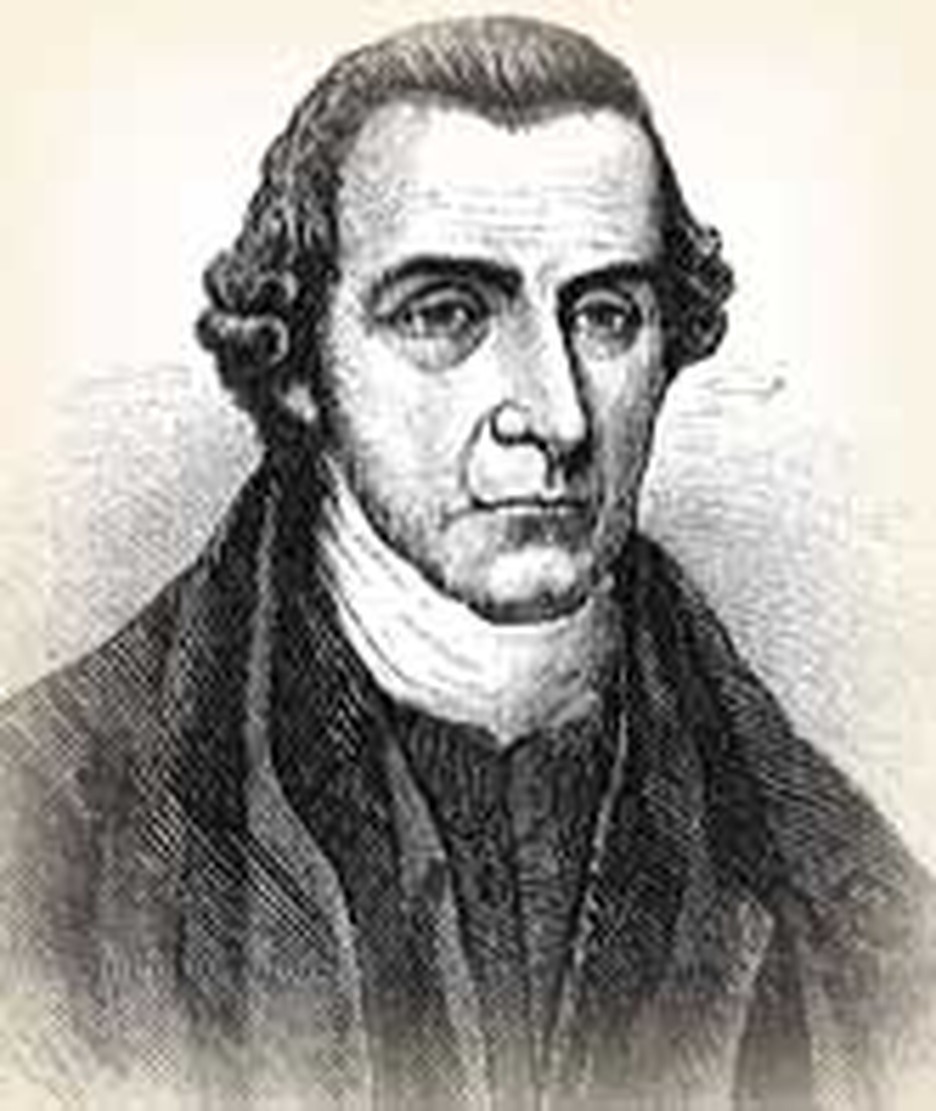
The American colonies were in an uproar in the spring of 1775. The British crown seemed to be depriving the colonists of their English rights; the governor of the Virginia colony had even dissolved the legislature because of its constant discussions about the King's actions against them. The assembly met anyway -- in St. John's Church, Richmond, Virginia.
During the debates, Patrick Henry delivered a speech on this day March 23, 1775 that electrified the assembly. Saying that if he kept back his opinions at such a time, through fear of giving offense, he would consider himself guilty of treason to his country and "disloyalty toward the majesty of heaven, which I revere above all earthly kings." Then, like the prophet Isaiah centuries before, Patrick warned of those who cried, "Peace, peace" when there was no peace. Insisting that war with Britain was inevitable, he called on Virginia to arm its militia. He rallied his countrymen to trust the God of Hosts and use all the means that the God of nature had placed in their power:
"Three million of people, armed in the holy cause of liberty, and in such a country as that we possess, are invincible by any force which our enemy can send us. Besides,...we shall not fight our battles alone. There is a just God who presides over the destinies of nations, and who will raise up friends to fight our battles for us."
Patrick concluded his argument with a passionate cry, "I know not what course others may take; but as for me, give me liberty or give me death!" A man listening at the window was so moved by the words, that he asked to be buried on that spot when he died--a wish that was granted.
Patrick had given significant speeches before. Thomas Jefferson said about one, "He appeared to me to speak as Homer wrote." Where had Patrick Henry learned such eloquence? Many speculate it was from Samuel Davies, Presbyterian minister in Virginia. Though Henry was reared an Anglican, his mother embraced Presbyterianism during the Great Awakening. As a teenager Henry often accompanied her to the meeting house in Hanover County where Samuel Davies was a pastor. Davies was an eloquent, powerful speaker as well as a strong advocate of religious liberty. No doubt Christian influences such as Davies helped shape the thoughts and oratorical skills of Patrick Henry.
Patrick Henry served several times as governor of Virginia. Sometimes he was hopelessly out of touch with the times. For instance, he tried to keep the Church of England as the established church of Virginia. Again, although he sought liberty for himself, he was content to leave blacks in slavery.
Nonetheless, he was a committed Christian throughout his life. His will concluded with these words: "This is all the inheritance I can give to my dear family. The religion of Christ can give them one which will make them rich indeed."
Bibliography:
- Adapted from an earlier Christian History Institute story by Diane Severance Ph.D.
- Copeland, Lewis. The World's Great Speeches. New York: Book League of America, 1942.
- Mitchell, S. C. "Henry, Patrick." Encyclopedia Americana. Chicago: American Corp., 1956.
- Risjord, Norman K. "Henry, Patrick." Encyclopedia of American Biography, edited by John A. Garraty. San Francisco: Harper and Row, 1975.
Last updated June, 2007
.jpg)

.jpg)
